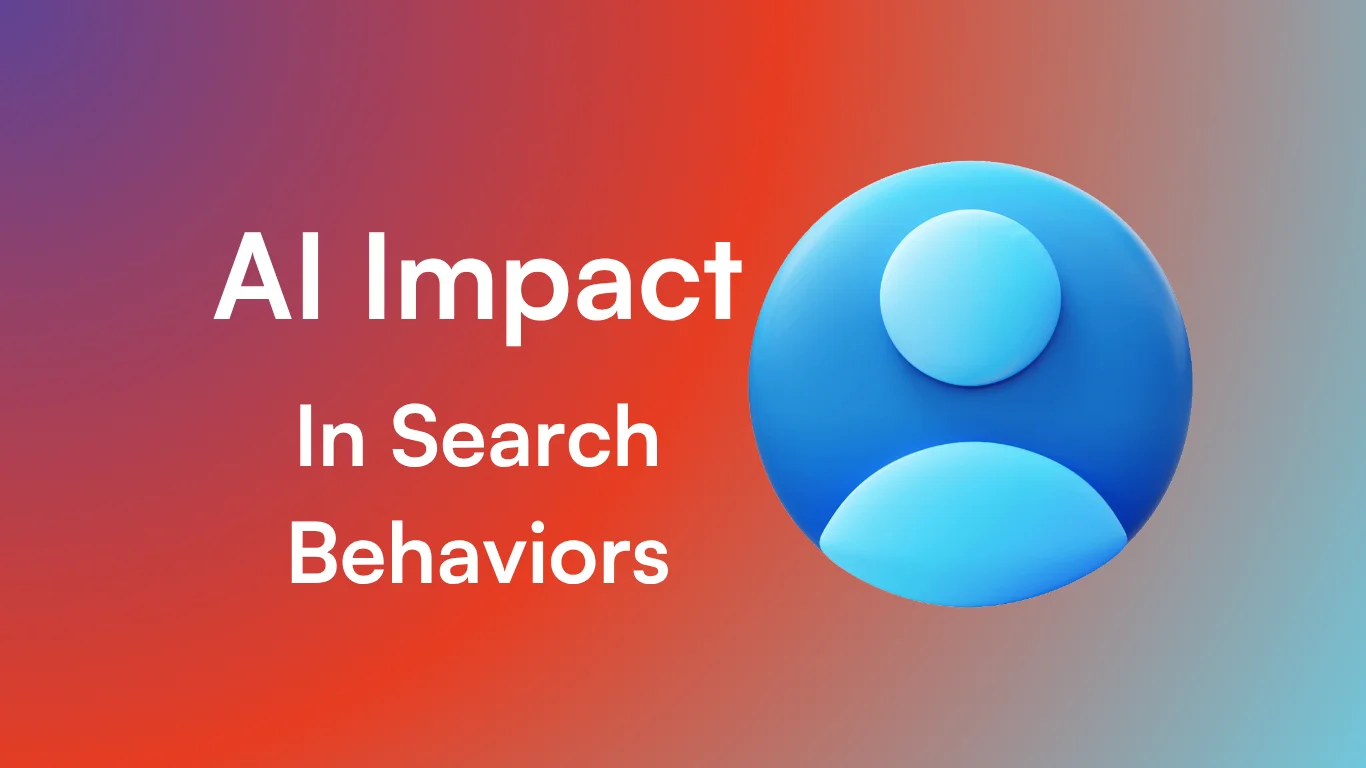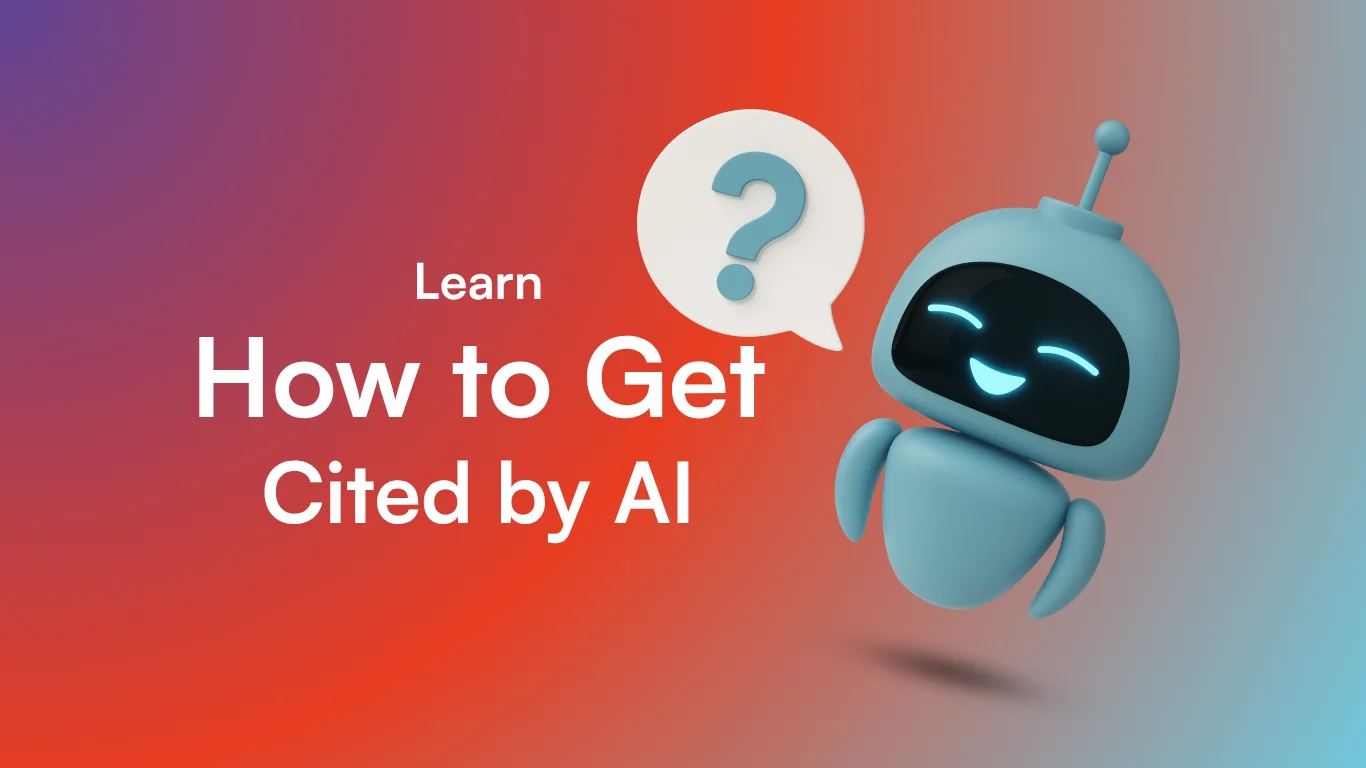Table of Contents
Artificial Intelligence (AI) is a transformative force reshaping how users interact with search engines. AI’s burgeoning presence in the digital ecosystem guides user behavior towards more personalized and efficient experiences. Understanding these changes is critical for businesses seeking to adapt and thrive in today’s competitive landscape.
Our journey into AI’s impact on search behaviors reveals how technologies, like GPT (Generative Pre-trained Transformer), SGE (Search Generative Experience), chatbots, and voice assistants, redefine user interaction with digital platforms. This article aims to uncover the opportunities and challenges brought by AI-driven search behaviors and their implications on SEO strategies, user engagement, and business outcomes.
Introduction to the impact of AI on search behavior
As AI capabilities evolve, their influence on search behavior grows increasingly apparent. The transformation is characterized by the shift from keyword-focused searches to more nuanced, conversational interactions. Such progress not only enhances user experience but fundamentally alters expectations for search engine results.
Through the integration of AI, search engines can interpret and respond to complex queries driven by natural language processing. This allows users to search using more intricate and contextually-rich inquiries, rather than relying on disjointed keywords. As a result, AI-driven search engines deliver more relevant and personalized results, facilitating enhanced user satisfaction.
The rise of conversational queries
The emergence of AI has catalyzed a significant change in how users formulate their search queries. Traditionally, search was predominantly reliant on strings of keywords. However, the sophistication of AI has shifted user behavior towards conversational queries, a paradigm where users engage search engines in a manner akin to natural dialog.
For instance, users may ask, “What are the health benefits of yoga?” instead of inputting “yoga health benefits.” As AI capabilities progress, search engines become adept at understanding context, intent, and conversational nuances. These advancements are supported by technologies such as GPT-3, renowned for its ability to comprehend and generate human-like text.
Conversational queries reflect the demand for instant, context-specific responses. By deciphering the intent behind such queries, AI-powered search engines can provide tailored results directly addressing user needs, thus enhancing the overall search experience.
How user behavior is shifting due to AI
AI’s integration into search engines is significantly affecting user behavior. The heightened expectation for relevance and personalization compels providers to innovate constantly. Users now anticipate succinct, accurate, and immediate search outcomes, a demand met by cutting-edge AI capabilities.
The advent of featured snippets exemplifies this change. These are sections where search engines directly present concise answers, diminishing the need for users to navigate multiple links and pages. Consequently, search efficiency and user engagement improve substantially.
Moreover, AI’s role in facilitating the development of voice assistants like Alexa and Google Assistant underscores this behavioral evolution. Voice-based interactions further propel users towards conversational queries, emphasizing the demand for seamless integration in their digital lives.
The evolution of search engines with AI
The progression of AI technology in search engines demonstrates a notable shift towards complex data interpretation and personalized user experiences. These developments empower businesses to optimize their digital strategies, exploit advanced functionalities, and connect more deeply with their target audiences.
AI search enhancements and their benefits
AI-driven enhancements revolutionize traditional search engine functionality, offering profound benefits that extend across user engagement and business efficiencies. Key advancements include:
- Real-time Data Analysis: AI enables search engines to process enormous data volumes swiftly, delivering insights that transform decision-making processes.
- Enhanced User Personalization: AI tailors search outcomes to individual preferences, considering past interactions and behaviors.
- Improved Predictive Insights: AI leverages predictive algorithms to suggest content potentially valuable to users before they articulate their needs.
By integrating AI into their search operations, businesses can maximize SEO efficacy, streamline the consumer journey, and bolster conversion rates.
Changes in SEO strategies due to AI
Incorporating conversational keywords into SEO
One of the pivotal shifts in SEO strategies due to AI impact on search behavior is the incorporation of conversational keywords. As AI refines its ability to understand natural language, SEO must evolve from a reliance on static keywords to more dynamic, contextually grounded terms that reflect how users communicate.
By integrating conversational keywords, businesses can better align their content with user intent, improving visibility and relevance. This shift calls for a re-evaluation of content strategies and the adoption of AI-powered tools that can assist in pinpointing valuable keyword opportunities.
EEAT and its significance in AI content
AI’s rise in content creation brings the concept of EEAT – Experience, Expertise, Authority, and Trustworthiness – to the forefront. Ensuring these standards are met in AI-generated content is critical for maintaining credibility and SEO success.
Brands must prioritize human oversight in AI content production, ensuring that messages are ethical, transparent, and resonate with audience expectations. Embracing EEAT principles strengthens SEO outcomes and fosters consumer trust.
Deepen: Brand voice
Featured snippets and AI-generated results
Understanding the dominance of featured snippets
Featured snippets represent a compelling shift towards direct, concise answers within search results, largely driven by AI innovations. These snippets enhance user experience by offering instant solutions, thereby transforming the user journey.
For businesses, achieving featured snippets visibility requires strategic content optimization, aligning closely with user intent and frequently asked questions. Success in this area can significantly improve click-through rates and brand visibility.
The user journey in an AI-driven search world
In an AI-driven search landscape, the user journey is marked by precision and personalization. From initial inquiry to transaction, users demand efficient pathways facilitated by AI capabilities such as predictive insights and tailored recommendations.
Businesses must recalibrate their digital engagement strategies to meet these expectations, focusing on improving conversion pathways and enhancing overall interaction quality.
The role of AI in shifting search behavior patterns
Practical examples of changing search habits
Consider the transition from desktop searches to mobile and voice-based interfaces. AI’s role in facilitating these changes underscores its impact on evolving search behaviors, emphasizing convenience and adaptability.
From refining product queries to mastering localized searches, AI continues to drive innovation in how users interact with digital platforms, necessitating agile marketing responses from businesses.


